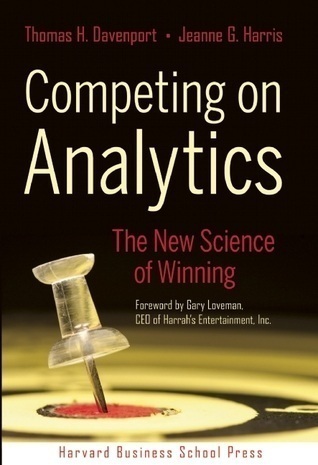This is a review of a chapter from ""Competing on Analytics"-
Characteristics of Analytical Executives:
My Thoughts:
This chapter is not very well done. It's focus is on the executives that manage analytical talent and not actually managing the analytical talent. One of the best books I have ever read is "Leading Geeks: How to manage and lead people who deliver technolgy" -- I don't expect this level of treatment in this book, but I do expect something better than analytics needs executive support- and then once executive support is there, that analytics will magically work well. It won't- most of the examples from the book are from organizations that are lead by people with an analytical background. The reader would be better served with an analysis of what these leaders did to encourage their talent.
- They should be passionate believers in analytical and fact based decision making. You cannot inspire others to change their behavior in a more analytical direction if oure not passionate about the goal.
- They should have some appreciation of analytical tools and methods. They need not be analytical experts, but they should have an understanding of the tools and qualitative assumptions that are a part of the analytics.
- They should be willing to act on the results of the analyses. The "action" stage is the most important piece of analytics. There is no point in commissioning detailed analytics if nothing different will be done based on the outcome.
- They should be willing to manage a meritocracy. It will become apparent who is performing and wh isn't. Those that are performing should be rewarded; those who don't perform shouldn't be string along for long periods. Nothing good comes from inaction when performance differences are visible.
My Thoughts:
This chapter is not very well done. It's focus is on the executives that manage analytical talent and not actually managing the analytical talent. One of the best books I have ever read is "Leading Geeks: How to manage and lead people who deliver technolgy" -- I don't expect this level of treatment in this book, but I do expect something better than analytics needs executive support- and then once executive support is there, that analytics will magically work well. It won't- most of the examples from the book are from organizations that are lead by people with an analytical background. The reader would be better served with an analysis of what these leaders did to encourage their talent.



